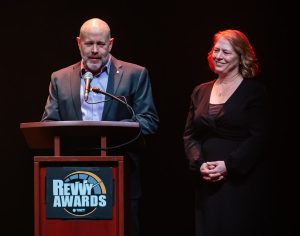From assassination attempts to a summer packed with sporting events like the Olympics, it’s so easy these days to get swept up in the whirlwind of distractions and news stories. Each day brings some new and exciting or “must-see” event that takes away our time, energy and focus from the things that we want to accomplish. The same is true of running a business. It’s challenging being a franchise business owner; you often have staff relying you, you have to make decisions left, right and centre, emails and socials need to be attended to and “Oh, what’s this new AI thing that’s supposed to do the mundane things for us and make our lives much easier?” This plethora of information, blinking at us, like flashing lights vying for our attention (figuratively and literally, via our screens), makes it far too easy to spend more time working in your business and not enough time working on your business.
What’s the difference?
Working in your business means that you are caught up in the daily grind; Emails, phone calls, meetings. These are important. They are the things that keep your business going, but not necessarily growing. Placing too much emphasis on them wastes time and your business might end up stagnating. In order for businesses to thrive, they need to continually adapt (see Grow or Die: The Unifying Principle of Transformation by George Land, 1986). Working on your business, then, is shifting the focus to the most important things that move your business forward. It’s the work that goes into achieving your goals, both short and long-term. Franchise business owners need to balance both, but how can you achieve this?
Shifting your focus
Start by actively setting some time aside, dedicating maybe 1 or 2 hours per week to work on your business growth plan. According to Darren Hardy’s 2010 book, The Compound Effect, it’s the small daily actions that, when compounded, lead to exponential results. This may seem easier said than done, so treat it as you would an important client meeting. Very deliberately schedule a slot into your calendar, turn off your phone notifications, step away from your emails and other distractions and purely focus on thoughts, ideas and discussions that will help you to achieve your big-picture goals.
Now that you’ve carved out the time each week, how should you use it effectively? Begin by creating a list of all of the things that you’d like to achieve in the next 12 months. These should be the big projects that will help to advance your company. In The Code of the Extraordinary Mind (2016) by Vishen Lakhiani, a clear distinction is made between “means goals” and “end goals”. “Means goals” are specific actions to take in order to achieve a larger objective, whereas “end goals” are broader in scope and deal with what you want to achieve in the long term. With this in mind, your list of goals for the next 12 months should be end goals; broad in scope and with long term thinking in mind.
Next, from your 12 month goals list, pick a selection of the most important goals that you’d like to focus on this quarter. This new list should contain between 5-7 means goals per person. In Gino Wickman’s 2012 book, Traction: Get a Grip on your Business, these are referred to as “rocks”. The analogy of the rocks can be found here. In short, rocks are the important things to prioritize over the day-to-day tasks. By shifting your focus and working on these things first, it gives you the capacity to complete both the important and daily tasks, instead of only completing the nitty gritty jobs and having zero energy left over to work on the things that matter. This is what actively working on your business looks like.
Rocks are designed to help you get closer to achieving your 12 month goals. They should also be SMART: specific, measurable, achievable, realistic and timed. Wickman also discusses the importance of adhering to 90-day cycles in business. Set your rocks according to the SMART principles and aim to complete them within 90 days. Draw a clear line in the sand, write down the end date on your team’s rocks. When you reach that mark, undertake a review to determine what percentage was completed. This, in itself, should be insightful. After the 90 days are up, schedule your next meeting, create new rocks for the next 90-day cycle, once again linking them to your annual goals and checking on your progress so far.
Modern life is busier than ever, it seems. We live in an age of information and constant opportunity for distraction. We need tools to counter this; to help us shift our focus and redirect our time and energy. Then, we are able to work on our businesses, as well as in them, in order to achieve the original intended vision and realize why we started doing business in the first place.
And finally, I’d encourage you to pause and reflect: Why did you start the business in the first place? What motivated you? What did you want then and what do you want now? How do you want to live? What changes are you willing to make today in order to help you achieve your goals?








